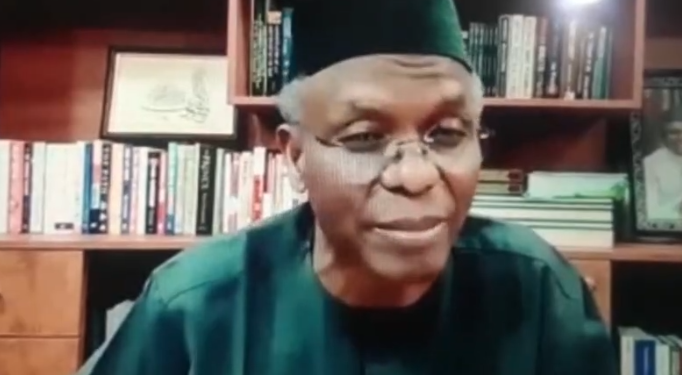Governor of Kaduna state, Nasir El-Rufai has called on the Department of State Services (DSS) to boost intelligence gathering and sharing efforts with other security agencies to tackle insurgency in the country.
According to El-Rufai, security agencies need to collaborate on intelligence gathering, not just to establish the identities, plans and locations of criminals, but to actively disrupt their capacity.
Speaking at the quarterly meeting of the DSS directors of the state commands in north-west region, which held in Kaduna on Thursday, el-Rufai said security agencies need to totally defeat insurgency to ensure food security in the region.
“As the lead agency for domestic intelligence and counter-intelligence, the Department of State Services has a vital role to play in providing the reliable information needed by the police and armed forces and other security agencies for the total defeat of these dangerous insurgents,” he said.
“Rains are here, but farmers in various communities are unable to go to their farms — that is when they are lucky not to have fled their remote villages under pressure and attacks from the criminals. This cannot be allowed to continue.
“Security deficits have devastated the rural economy, taken lives and property and made simple travel an ordeal across federal, state and local roads.
“This grave problem and restoring order requires that security managers and intelligence agencies constantly share information and experiences.”
He said his administration has made significant investment in security over the past five years, noting that the state government has commenced the installation of closed-circuit television (CCTV) systems across Kaduna metropolis.
The governor said the project will be completed within the next one year, adding that the police and other security agencies will be empowered to take pre-emptive action to deter criminals.
He also said the state government has invested in drones, and is working with the Nigerian Air Force and other security agencies to see that the drones are deployed to ensure efficient intelligence gathering.
El-Rufai, however, said states in the north-west region need collaboration to tackle criminals who operate across state lines.
“Any plan that seeks to address the problem only in one state will at best yield a temporary respite, as the criminals retreat to safe havens in places where there are no active and continuous counter-insurgency operations,” he added.
El-Rufai recalled that in 2015, governors of the north-west and Niger state came together to fund simultaneous operations by the military and security agencies across the largely ungoverned Kamuku-Kuyambana forest that links to seven states.
“These operations disrupted the cattle rustling gangs, but were unfortunately not sustained as a continuous exercise to dominate these spaces and assert within them the authority of the Nigerian state,” he said.
“That the criminal gangs have become more daring and dangerous since recovering from their near defeat in 2015 is obvious across the country.”
He commended security agencies in the state and assured them of continuous support.
“Security management is a thankless job. I receive your reports every day. I read them, and I know how many attacks or planned attacks that have been plotted, that have been stopped. People do not know about this; they only know when something happens,” el-Rufai said.
“People always say our security agencies are doing nothing, but we know how many of you are killed in the line of duty, and I just want to say on behalf of the government and people of Kaduna state, we appreciate you even if what you see in the media is lack of appreciation.”










Discussion about this post